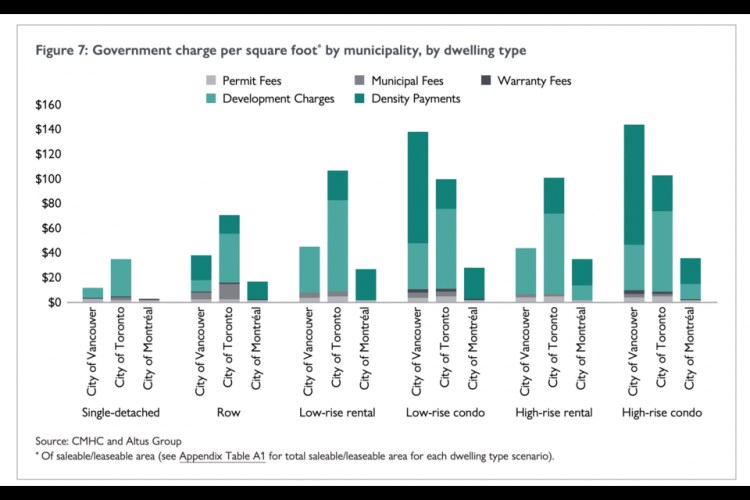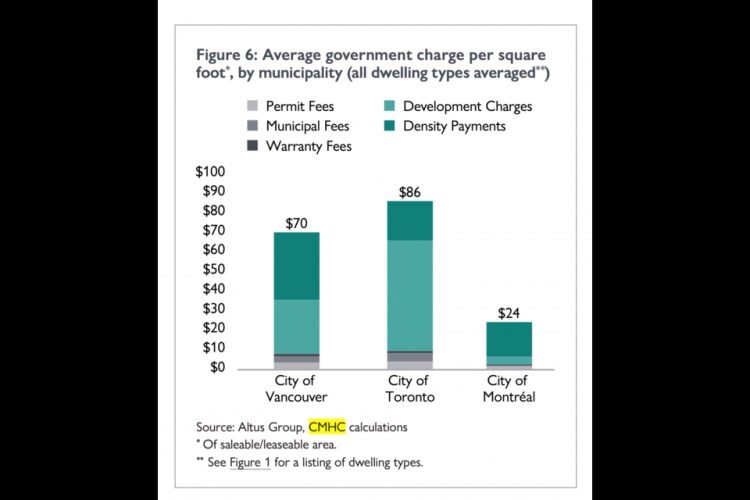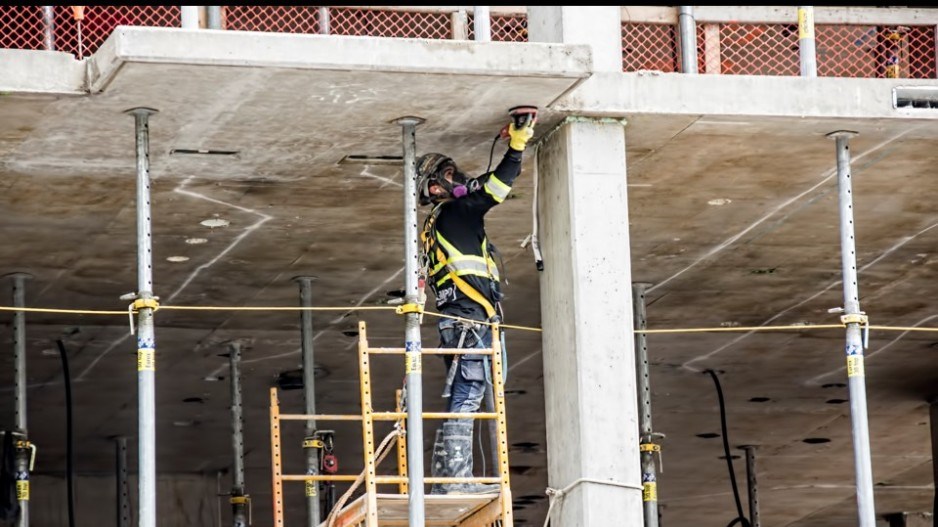Verifying what home builders have been saying for years, a new report from Canada Mortgage and Housing Corp. (CMHC) confirms that government costs and fees add tens of thousands of dollars to the price of a new home.
According to a new joint CMHC and Altus Group Housing Market Insight report, Government Charges on Residential Development in Canada's Largest Metropolitan Areas, released July 5, government fees impact the cost of new home construction by as much as 24 per cent.
The study examined the number and cost of government fees on six different new home development scenarios, from a single-detached house to low- and-high-rise multi-family buildings, in select municipalities in Canada’s three largest metropolitan areas: Metro Vancouver, Greater Toronto Area (GTA), and Montreal.
“The single-detached house tends to be the housing type subject to the lowest government fees [an average of 8.5 per cent]. This seems to run contrary to densification efforts being pursued by municipalities, which are necessary to increase housing supply within existing urban areas,” CMHC noted.
According to the report, the average government charge per square foot for municipalities in the GTA is $86; in Metro Vancouver, $70; and, in Montreal, $24.


The City of Vancouver had the highest cost per-square-foot on low-rise and high-rise strata condo buildings of all cities studied, at $143 per square foot, owing entirely to density payments.
Density payments relate to the amount of density permitted on a site and are designed to raise revenue for community amenities (such as swimming pools, parks, etc.).
“The size of contribution payments can be subject to negotiation, introducing an additional layer of complexity and uncertainty. The amount levied is related to the incremental value of the site pending rezoning (“land lift”) or additional density being permitted on a site,” CMHC noted.
Government charges for low-rise rental buildings in Vancouver were the second highest in Canada, at $45 per square foot.
In Vancouver, the average of 9.3 charges per new multi-family development account for 7 per cent to 20 per cent of construction costs, with new condominiums bearing the higher percentage.
In comparison, a typical developer’s profit on a new condo project is estimated at between 10 per cent to 15 per cent on a development pro-forma statement, according to CMHC.
Previous private-sector studies done by the Greater Vancouver Board of Trade and Toronto’s Building Industry and Land Development Association estimated that government costs accounted, on average, for 21 per cent of the price of a new detached house and 26 per cent of the price of a new condominium.
Based on average current new home prices and CMHC’s estimates, government costs would add approximately $180,000 to a price of a typical new condo in Vancouver.
The CMHC study also included North Vancouver, Langley and Burnaby within Metro Vancouver. Langley has the lowest government fees per square foot (between $12 and $33). Fees per square foot in North Vancouver and Burnaby are similar to Vancouver, hovering between $9 and about $40 per each square foot of new construction, the study stated.




